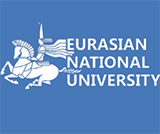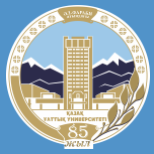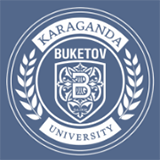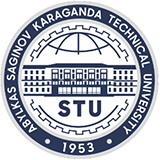Kazakhstan School of Public Health (KSPH)
Overview
The Kazakhstan School of Public Health (KSPH) is a higher education institution located in Almaty, Kazakhstan, focusing on education and research in the field of public health. KSPH was established in 1995 and is an important academic institution under the Ministry of Health of Kazakhstan. The college is known for its high-quality education and rich research results, and has trained a large number of professional public health talents in Kazakhstan.
Campus
The main campus of KSPH is located in Almaty, covering a vast area and equipped with modern teaching buildings, laboratories, libraries and student dormitories. The campus has a beautiful environment and complete facilities, providing students with a good learning and research environment.
Number of students in school
As of the most recent data, the Kazakhstan School of Public Health had about 1,500 students, including undergraduate, master's and doctoral students. The total number of faculty and staff is approximately 150, many of whom are well-known public health experts and scholars.
educational philosophy
KSPH is committed to cultivating comprehensive talents with high-level professional skills and innovative thinking. The school emphasizes the combination of theory and practice, focuses on students' practical abilities and professional qualities, and strives to provide students with a platform for all-round development. Through high-quality education and rich practical opportunities, the school aims to train future public health professionals and leaders for Kazakhstan and the international community.
Disciplines and majors
KSPH has multiple departments and majors, offering a wide range of undergraduate, master's and doctoral programs:
Department of Epidemiology and Biostatistics: Covers epidemiology, biostatistics, health data analysis, etc.
Department of Environmental Health: Provides courses in environmental health, occupational health, and environmental toxicology.
Department of Social Medicine and Health Management: Covers social medicine, health policy and management, health economics, etc.
Department of Nutrition and Food Safety: Provides courses in nutrition, food safety, and public nutrition.
Department of Child and Adolescent Health: covers child health, adolescent health, reproductive health, etc.
Department of Global Health: Provides courses in global health, international health policy, and global health governance.
Continuing Education and Training Center: Provides various vocational training and continuing education courses.
Featured items
Internship and practice: Cooperate with a number of medical institutions and public health institutions to provide students with internship and practice opportunities and enhance students' practical ability.
Research and Innovation: Establish multiple research groups to support students in conducting research and innovative projects in the field of public health.
International exchange: Establish cooperative relationships with many similar universities and research institutions in the world to provide short-term exchanges and joint training projects.
Community Service: Students are encouraged to participate in community service and volunteer activities to develop a sense of social responsibility.
Academic conferences and lectures: International academic conferences, seminars and lectures are held regularly, and well-known domestic and foreign scholars are invited to visit to promote academic exchanges and cooperation.
Application conditions
Undergraduate students: Usually a high school diploma is required, and some majors may require relevant entrance examination scores. The application period is from September each year to January of the following year.
Graduate students: Generally require a bachelor's degree in related majors, and some majors may also require relevant entrance examination scores. The application period is from October each year to April of the following year.
cost
Tuition fees vary by major and program. Tuition fees are usually higher for international students. Specific tuition fees and scholarship information can be found on the official website of the college.
campus life
Accommodation: The college provides various types of dormitories, including single rooms, double rooms and suites, with complete facilities and comfortable environment.
Club activities: The college has multiple student clubs covering academic, cultural, sports and other fields.
Sports facilities: The college provides a variety of sports facilities such as gyms, stadiums, and basketball courts to encourage students to actively participate in sports activities.
internationalization
The Kazakhstan School of Public Health attaches great importance to internationalization and has established cooperative relationships with many similar universities and research institutions in the world. It provides short-term exchanges and joint training projects and encourages students to participate in international exchanges.
research and innovation
The college has conducted a large amount of research work in the field of public health, especially in epidemiology, environmental health, social medicine, nutrition and food safety. The college has first-class laboratories and research facilities, and cooperates with a number of medical institutions and research institutions to promote the application and transformation of scientific research results.
-

Suleyman Demirel University, Kazakhstan
-

Nazarbayev University
-

Kazakh-British Technical University
-

Almaty Technological University
-

L. N. Gumilyov Eurasian National University
-

Al-Farabi Kazakh National University
-

Karaganda Buketov University
-

Karaganda State Technical University
-

S. Seifullin Kazakh Agro Technical University
-

South Kazakhstan State University
-

Mesoamerican University
-

Istmo University
-

Mariano Galvez University of Guatemala
-

Regional University of Guatemala
-

Galileo University
-

Francisco Marroquín University
-

Rafael Landívar University
-

University of the Valley of Guatemala
-

University of San Carlos of Guatemala
-

Technological Institute of Tlaxcala Plateau
-

Golfo University
-

Technological University of South Sonora
-

Technological University of Huejotzingo
-

Tizimín Institute of Technology
-

Chilpancingo Institute of Technology

